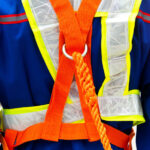EFB Definition
An Electronic Flight Bag (EFB) is an electronic system with equipment and applications that store, update, display, and process functions to support flight operations. This means that pilots no longer must drag heavy flight bags around, stuffed with paper charts of the entire country. Even better, weekly revisions are now done with the click of a button, instead of manually on the living room floor. Updating documentation is now faster, easier, and much more efficient.
EFB Purposes
EFBs are a source of information that replaces onboard paper documentation for pilots. Each compact tablet provides a wealth of information to the flight crew, including:
- A way to retrieve checklists and procedures,
- Performance data necessary for weight and balance and performance computations for take-off, cruise flight, and landing,
- A browser to access documentation for flight operations, such as MEL, CFTM, and FCOM, and
- Data about past, present, and future flights, such as flight plans, navigation charts, and other flight information.
EFB Advantages
Having all your flight information in one electronic place has several advantages over the old paper system.
- There is significantly less weight and paper clutter on the flight deck.
- It is much faster to retrieve information with an EFB. Dedicated software, along with enriched documentation with colors, hyperlinks and interactivity makes it easier and more efficient to gather data.
- Pilots can see real-time data in flight, leading to better situational awareness. Seeing live weather data, as well as the aircraft’s position on the navigation chart can make a real difference in safety.
- Using an EFB increases flight safety by reducing the risk of calculation errors in performance data. It also provides important information during the critical phases of flight.
- Performance software can optimize aircraft performance by simplifying computations, offering higher payload capacity, higher FLEX temperatures, and precise predictions for operational efficiency.
- There is a substantial benefit to the environment by reducing paper usage for each flight.
Electronic Storage
The benefit of this technology goes beyond the flight deck. Flight training is also utilizing the convenience and efficiency of EFBs to replace bulky, heavy flight manuals and other documents that have been traditionally difficult and expensive to update and maintain. These tablets can store and retrieve a variety of documents such as:
- Navigation maps and charts,
- Aircraft performance manuals,
- Weight and balance documents,
- Aircraft flight manuals, in their entirety,
- Minimum equipment lists,
- Electronic checklists, including normal, abnormal, and emergency procedures,
- Reporting forms, and
- Flight planning documents.
The advances in Electronic Flight Bag technology have been astounding over the past several decades. Pilots have more information available at their fingertips than ever before. Situational awareness is better than it’s ever been and our ability to have critical information on hand is a real game changer. It will be interesting to see what the future holds for storing valuable aviation data.










